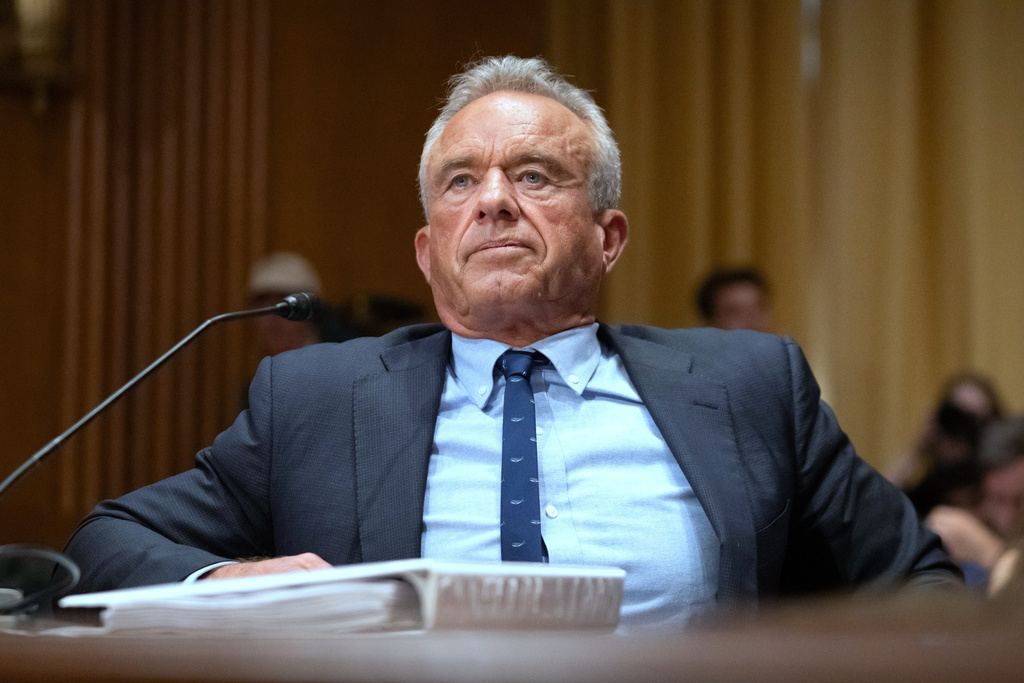


Former Centers for Disease Control and Prevention Director Susan Monarez will tell the Senate HELP Committee on Wednesday that she was fired from her post by the Trump administration last month for refusing to allow political pressure to take over the agency.
According to a copy of her testimony obtained by the Washington Examiner ahead of the hearing, Monarez will detail that she was “fired for holding the line on scientific integrity” after a clash over vaccine policy with Health and Human Services Secretary Robert F. Kennedy Jr., a longtime vaccine skeptic.
Recommended Stories
- House pushes for transparency about 'threats to patient safety' in organ transplant system
- CDC names five new vaccine board members days ahead of pivotal meeting
- Ditching daylight saving time could prevent millions of obesity cases and thousands of strokes, study says
Monarez was fired by President Donald Trump on Aug. 27 after just 29 days of serving in the position and being confirmed by the Senate.
Her dramatic exit, along with the resignations of three other top CDC officials, came just hours after Kennedy announced that approval for COVID-19 vaccines would only be granted to those with comorbidities that put them at risk for severe disease.
Senate Health, Education, Labor, and Pensions Committee Chairman Bill Cassidy (R-LA) invited Monarez to describe the circumstances of her termination, which Kennedy and others in the Trump administration have defended as cleaning up the agency following the myriad of policy failures during the COVID-19 pandemic.
Monarez’s testimony details the timeline of events leading up to her termination, beginning with media reports in early August that the Advisory Committee on Immunization Practices was purging long-standing experts and reviewing the childhood vaccine schedule.

Before Monarez’s confirmation, Kennedy disbanded the prior members of the ACIP and replaced them with seven new members, which was more in line with his skepticism of the status quo on vaccine policy. On Monday, Kennedy announced five new members who have also been critical of vaccines throughout their careers.
Monarez writes in her testimony that, on Aug. 19, she received a directive from Kennedy’s office requiring “prior approval from [her] political staff for CDC policy and personnel decisions.”
During a meeting with Kennedy on Aug. 25, Monarez writes that the secretary demanded that she “commit in advance” to approve of the decisions of the ACIP “regardless of the scientific evidence” and that she “dismiss career officials responsible for vaccine policy, without cause.”
“He said if I was unwilling to do both, I should resign. I responded that I could not pre-approve recommendations without reviewing the evidence, and I had no basis to fire scientific experts,” Monarez says in her testimony.
Monarez’s written testimony also clears up a statement Kennedy made last week during his hearing before the Senate Finance Committee, during which he was grilled by Democrats and Republicans about his decision to fire Monarez.

Kennedy told the Finance Committee that Monarez admitted to him that she was “untrustworthy,” which he said was the reason for her termination. But Monarez’s written testimony says it was Kennedy who insisted that “he could not trust [her].”
“I had refused to commit to approving vaccine recommendations without evidence, fire career officials without cause, or resign — and I had shared my concerns with this Committee. I told the Secretary that if he believed he could not trust me, he could fire me,” Monarez wrote.
Monarez is slated to testify on Wednesday alongside Debora Houry, former chief medical officer at the CDC, who resigned following Monarez’s termination.
Houry’s written testimony, also obtained by the Washington Examiner, says she decided to leave the agency voluntarily because Kennedy “repeatedly censored CDC science, politicized our process, and stripped agency leaders of the ability to protect the health of the American people.”
“CDC’s senior science leadership were no longer permitted to rely on their expertise — they were expected to serve as a rubber stamp for the Secretary’s decisions. I could not, in good conscience, remain under those conditions,” Houry’s testimony reads.
Houry says that her “final tipping point” was when Kennedy required “political clearance” for all of Monarez’s decisions.
“That meant she would not be permitted to exercise her scientific expertise or protect the agency’s independence — she would be forced into the role of a rubber stamp,” Houry writes. “At that moment, it was clear CDC’s leaders would no longer be able to defend their staff or their science.”
CDC NAMES FIVE NEW VACCINE BOARD MEMBERS DAYS AHEAD OF PIVOTAL MEETING
Several Senate Republicans, including Majority Leader John Thune (R-SD), have expressed frustration with Kennedy over the firing of Monarez and the resignation of high-level leadership.
Trump has not yet named a new permanent CDC director nominee. The nominee will require a confirmation hearing in front of Cassidy’s committee before being subject to a full Senate confirmation vote.
